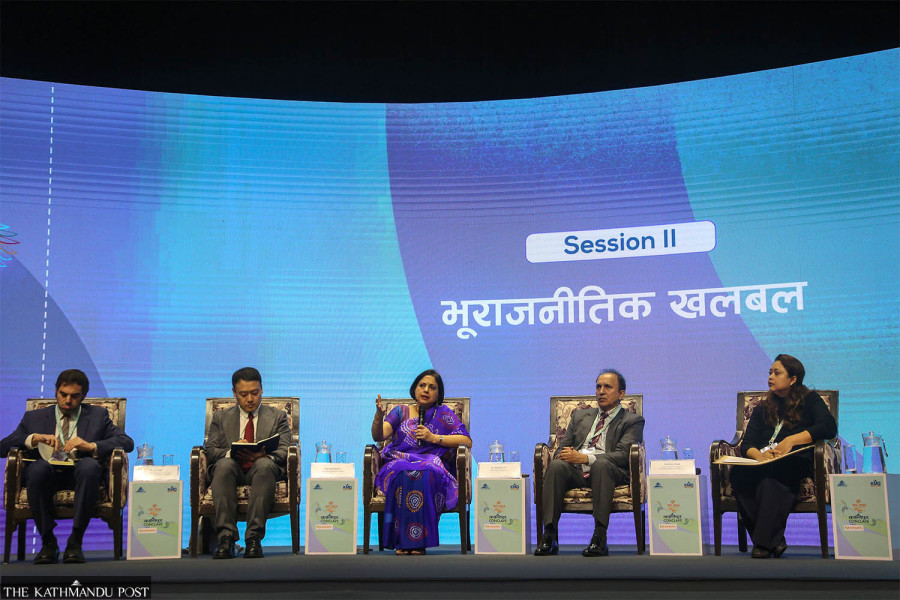National
Foreign policy watchers talk Trump, Nepal and geopolitics
Chinese scholar Peng stresses Nepal’s strategic importance arguing it should not be viewed as just a peripheral actor.
Post Report
Experts gathered in Kathmandu on Thursday to analyse the shifting geopolitical dynamics in South Asia, focusing on the potential impact of US President-elect Donald Trump’s foreign policy. The discussions centred on how a second Trump term could reshape US-South Asia relations, particularly emphasising Nepal’s strategic role in the region.
Speaking at the session ‘Geopolitical Turbulence’ on the second day of the Kantipur Conclave underway in Kathmandu, Suhasini Haidar, diplomatic affairs editor at The Hindu, discussed the potential outcomes of Trump’s foreign policy in South Asia.

She said that under Trump, India could expect a focus on trade and technology, with the US pushing for reduced tariffs and increased investment. She said that Trump’s stance on South Asian matters, particularly Pakistan and Bangladesh, may become less focused, with a stronger emphasis on India, reflecting the broader “America First” agenda.
Also speaking, Wang Peng, a research fellow from the Institute of State Governance at Huazhong University, said that while both Trump and Biden administrations share the goal of countering China’s influence, their approaches diverged.
“Under Biden, the focus was on integrating third-party countries into a US-led economic network, whereas Trump’s strategy was more aggressive, imposing tariffs on China and its allies,” he said.

Wang also emphasised Nepal’s strategic importance, arguing that it should not be viewed as a peripheral actor but rather as a central hub for dialogue between East and South Asia.
Likewise, Michael Kugelman, director of the South Asia Institute at the Wilson Centre, predicted that Trump’s return to office could lead to significant shifts in US relations with South Asia.
He suggested that US-India relations would likely improve under Trump, as issues such as Russia and human rights, which were sources of tension during the Biden administration, would not be as prominent.

Kugelman also noted that Bangladesh might shift back to a trade-focused relationship under Trump, with a decreased emphasis on nation-building and reform. He said that Trump would likely focus on the Indo-Pacific and great power competition while countering China, which remains a central goal.
Likewise, Khadga KC, the rector of Tribhuvan University, highlighted Nepal’s need for a careful balancing act in its foreign policy. He emphasised that the US-India relationship under Trump could indirectly affect Nepal’s positioning, as the closer alignment between the two powers could put pressure on Nepal.
KC also mentioned Nepal’s participation in the Belt and Road Initiative (BRI) and the Millennium Challenge Corporation (MCC), demonstrating the country’s strategic engagement with China and the US. He stressed that despite challenges, Nepal’s geopolitical position offered opportunities to leverage benefits from multiple global players.





 9.89°C Kathmandu
9.89°C Kathmandu













